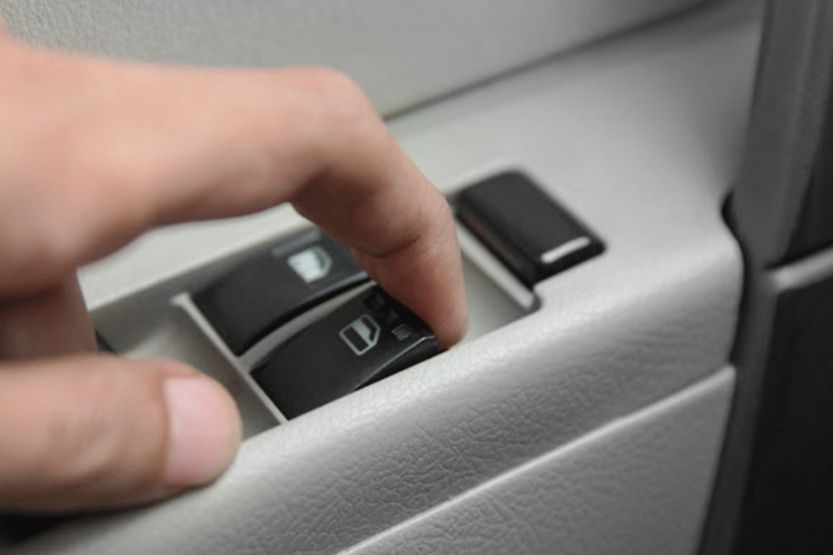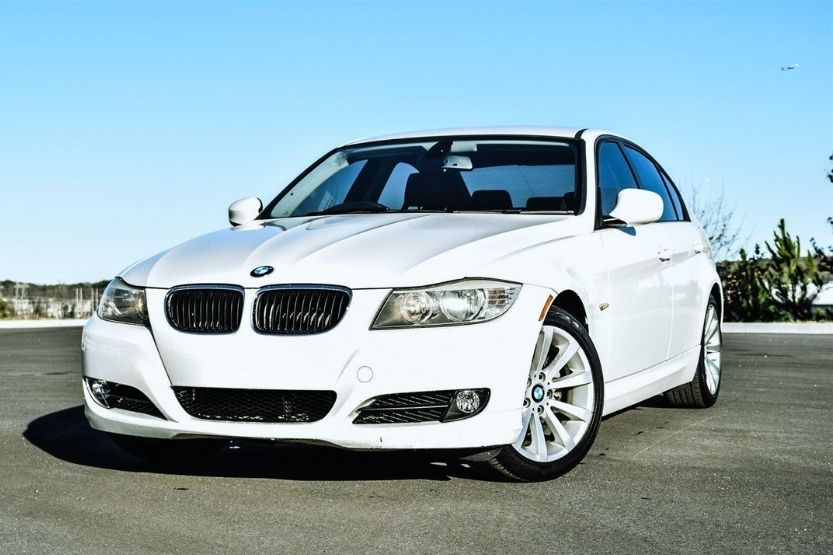The BMW is synonymous with luxury for a good reason. The BMW brand has been building beautifully crafted high-end vehicles for over one hundred years. A long history like theirs brings experience and inevitably leads to improvements. But the question remains; are BMWs considered good cars?
The BMW is one of the most highly sought-after brands on the market, and there are many reasons for this. If you ask the experts, they will agree that BMWs qualify as a good vehicle. Yet, they tend to have a reputation for being unreliable and needing frequent repairs.
Read on to learn more about what makes the BMW a good brand, despite the naysayers.
Are BMWs Good Cars? [BMW Reliability]

BMWs Are Reliable Vehicles
Experts use several factors to decide if a vehicle is good or bad. Measurements like performance, reliability, features, and price are all necessary.
Overall, BMWs are reliable vehicles. BMW is a longstanding brand and has developed a lengthy list of different models. With a long history, some models have inevitably performed better than others.
Issues with BMW Models
A handful of BMW models are famous for having issues with engine performance. Some models have a reputation for having faulty electronics.
These models may be what people remember first when they think of the BMW brand. This may have led to BMW’s bad name regarding reliability.
Holds a Top Spot on the Desirability and Reliability List
The BMW brand holds a top spot on the desirability and reliability list. This is likely due to its outstanding performance capabilities. Couple that with the brand’s luxury aesthetic, and you have what continues to make BMW a fan favorite.
Repair and Routine Maintenance Cost
High-end performance vehicles cost more to service or repair. This fact may affect the consumer’s impression of their reliability.
Routine maintenance can also cost more on average for a vehicle like a BMW. These factors may have something to do with the skewed opinion that they are unreliable.
What Is BMW’s Reputation?
Repair-pal.com Gives BMW a Reliability Rating of 2.5 out of 5
Repair-pal.com gives BMW a reliability rating of 2.5 out of 5, ranking it at the bottom of the list. This statistic seems to stick in people’s minds when discussing the BMW. But it helps to look at the factors they used to figure that number.
Repair-pal.com uses several statistics based on consumer responses to compile their list. These include how often the vehicle needs service and how much owners spend on repairs and maintenance annually. They also consider how critical the nature of the repair was.
Expensive Service Costs and Parts
Servicing a BMW can be pricey, especially if you go to a trained and certified BMW mechanic. Factor in the high price of parts for foreign luxury-class vehicles, and it makes sense why the BMW brand might score low on these reports.
The percentage of repairs considered to be critical was around 15%. This percentage may be higher than similar brands but is not extraordinarily high.
BMW Ranks Number 10 Out of 32 Brands In Terms of Dependability
According to the J.D. Power 2021 Vehicle dependability study, BMW ranks number 10 out of 32 brands. So, why is there a discrepancy between the expert opinion and the common opinion held by the public?
BMW Outperforms Its Competitors
Luxury-class vehicles tend to have advanced electrical systems designed to enhance their features. Replacing or repairing an electrical component in a vehicle is pricey.
As for the major mechanical systems, BMW seems to outperform its competitors. The engine, drivetrain, and suspension on most models speak for themselves. The reason BMWs have gotten a bad rap for reliability seems to be the high cost of repairing minor mechanical and electrical issues.
Popular Choice for Consumers
BMWs are always a popular choice for consumers. They offer a high-end luxury car that makes a statement. This popularity has a lot to do with their outward appearance and the cushiness of the interior. Everything that makes a car “luxury” is standard for a BMW.
Owners can expect tons of extras included on the dash console. Not to mention an interior that screams comfort. If you want to make a statement by driving an expensive luxury vehicle, the BMW accomplishes this.
Common BMW Problems

Many of the issues surrounding the reliability of BMWs stem from a few common problems. One of the most reported problems is failures related to complex electrical systems.
Another issue seems to be the neglect of routine maintenance. We have compiled a list of some of the most common issues people have reported with the BMW brand:
1. Faulty Windows
The electric motor that runs the automatic windows tends to fail. Consumers report windows getting stuck open or not operating correctly.
2. Door Handles
Premature wear and tear on door handles are a common customer complaint. Owners also report loose door panels or trim.
3. Coolant System Issues
Regular maintenance and inspection of coolant systems are critical for any vehicle. The cooling system is susceptible to worn components and failure of certain parts. This repair shows up on the list for BMWs often and may be due to the manufacturer’s use of plastic parts.
4. Oil Gasket
Owners frequently report worn and leaky oil gaskets. Again, regular maintenance and service on your vehicle can catch this issue before it becomes a significant problem.
5. Electrical System Failures
The electrical system seems to be the owners’ big complaint, from faulty headlights to issues with the electronic panels. Faulty taillights and sensors are also common repairs. Most high-dollar repairs of this kind are usually related to advanced onboard technology.
BMW adds a lot of luxury features when it comes to interior technology. And these are likely to fail or need to be replaced at some point in the vehicle’s history. Again, this complaint is probably related to electrical and electronic repairs can be both costly and involved.
6. Alloy Wheels
As someone who previously owned a vehicle with alloy wheels, I understand how this would be a complaint. Alloy wheels wear out much faster than steel wheels. And a luxury vehicle with ugly rims doesn’t make much sense.
7. Engine Troubles
A handful of BMW models have been notorious for engine troubles. When you’re a brand that has been around for as long as BMW, there will be some duds.
The BMW brand is always trying to upgrade the performance capabilities of its vehicles. They have taken some risks that didn’t pay off in the process. Stay away from these models, and you will be sure to get a reliable luxury vehicle.
Common BMW Complaints
It seems there are a few common complaints from BMW owners. These repeated issues may have led to the misconception that they are unreliable. Most complaints center around these three things:
1. Maintenance Costs
Like all vehicles, BMWs need regular maintenance and service. And care tends to cost owners more when performed by BMW-qualified technicians.
High-end manufacturers, like BMW, assume that buyers are going to have access to a bigger budget for maintenance costs. Skimping on routine maintenance can harm the life and reliability of any vehicle.
2. Price of Parts and Labor
BMWs need foreign parts. These parts come with a higher price tag than comparable domestic parts. It is often more costly to find someone qualified to repair or replace these parts.
2. Electronic Repairs
BMWs have many delicate electronic components. These additions are meant to add to the luxury experience for the owner. These super-advanced parts can cost a significant amount of money to fix or replace when they start to fail.
It’s not uncommon for an older BMW to have a failing computer system with a high replacement cost that the owner may not find worth the money to fix it.
Again, is BMW a reliable car? According to the Consumer Reports’ 2020 rankings, every BMW model got an above-average reliability rating. Overall, BMW placed 8th in the rankings with the i3 electric vehicle and the X6 midsize SUV as the brand’s most reliable models.
Life Expectancy of a BMW
Can Last for 250,000-300,000 Miles
In general, and with proper maintenance, BMWs will last for 250,000-300,000 miles before being retired from the road.
Visits the Dealer for Routine Service Can Prolong BMW’s Service Life
And it’s not unheard of for them to go even longer, which is why they are considered good cars. Prompt visits to your dealer for routine service will make a big difference in the longevity of your BMW.
The reliability of a BMW all comes down to what happens after it leaves the lot and winds up in someone’s ownership. The owner has a responsibility for proper care and maintenance.
The care or neglect of this task will dictate how reliable the vehicle is ten, twenty, or thirty years down the road.
Go to a BMW-trained Mechanic
The best advice for ensuring your BMW lasts for a lifetime is to take good care of it. Don’t neglect routine maintenance. Always go to a BMW-trained mechanic who knows what they are doing.
It also pays not to skimp on the little things. If someone spends the money to invest in a luxury vehicle, they can also expect to pay more for the upkeep. Annually, BMW owners can spend around $1000 on regular service visits and repairs.
Best BMW Models

1. 2006-2011 BMW 3 Series
Ask anyone who knows about these things, and they will agree that the 3-series tops the list of the best BMW models.
Best-selling Model
It is the best-selling model and accounts for around 30% of annual car sales. They have a good mix of value and comfort. And owners report very few problems with major mechanical issues.
Comes in a Sedan, Wagon, or convertible
The 3-Series comes in a sedan, wagon, or convertible. It has a more bare-bones interior design and fewer fancy electronics on board. So it will require less repair work. Also, the 3 Series focuses more on drivability, and many owners like that.
2. BMW 5 Series
Second Best-selling Series in the BMW Brand
The 5 Series is the second best-selling series in the BMW brand, behind only the 3 Series. Its seventh generation version is currently available. Also, it has more bells and whistles than the 3 Series.
May Not Have the Same Performance Capability as Its Predecessor
It may not have the same performance capability as its predecessor, but it’s still one of the best models on the market.
Ironically, many of the older generations of this series make it onto some “worst of” lists. This may be due to the heavy use of newer electronics that may fail and need to be replaced. Despite that, you can’t deny the selling power of these BMWs, especially in the newer generations.
3. 2013 BMW 1 Series
This hatchback version of BMW’s best-selling 3 Series offers you similar power and performance as its counterpart but in a smaller size. It still comes loaded with lots of great features and gets good mileage.
4. 2019 BMW 8 Series
The 8 Series was designed to be a high-end luxury sport coupe. It hits all the marks when it comes to performance, safety, and the luxury that BMW is famous for. Its high price point is understandable considering all it has to offer. This includes the ability to do 0-60 in 3.8 seconds.
5. BMW X1
This model has everything you could want from a subcompact SUV. It has the roominess of an SUV, a powerful engine, tons of safety features, and a decent price point for a luxury SUV.
Worst BMW Models
1. BMW Z3 1.9i
This BMW resembles the Mazda Miata in body style and boasts a small engine. This model missed the mark for a brand that values its status as a high-performance vehicle manufacturer. It has a top speed of 122 mph and goes 0-60 at a snail’s pace of 10.1 seconds.
2. BMW 7 Series (E65)
This model was intended to be the brand’s new flagship when it was released. It came with a slew of technological advances. And while the v8 or v12 engine choices gave it a decent performance rating, the failure came from the electronic systems.
Buyers found the brand new iDrive system complicated and unreliable. BMW didn’t yet have the kinks worked out of all the new electronic upgrades, and it showed.
3. BMW M6 (E63)
Engine problems and bad gas mileage ruined what should have been a great comeback for this model. The engine was one of a kind, and the car had a top speed of 155 mph. But the reliability issues overshadowed what could have been a top-of-the-list model for the brand.
4. BMW 2014 i3
BMW missed the mark on this one. They engineered this model to look space-aged and modern to capture their hybrid market share. They wound up with an ugly, box-shaped vehicle that completely disregarded BMW’s reputation for being sleek and sexy.
The number of electronics onboard sucked up so much energy that it made the battery seem useless. And they threw safety out the window in exchange for losing a few pounds of the steel frame.
5. BMW 2015 4 Series
The 2015 4 Series attempted to upgrade the 3 Series into a sportier version. BMW failed to give this model enough power to call it a sports car. The upgrades they added included an all-wheel drive and an engine that didn’t make the grade.
BMW Frequently Asked Questions
Are BMW Parts Expensive?
BMW replacement parts cost more than parts for a vehicle manufactured domestically. Many parts must be imported overseas, and there could be delays in obtaining them.
There’s a chance you could wait for weeks, or even months, for a replacement part. This means you could be out of a vehicle while yours sits in the shop waiting for the right part to show up.
How Much Does It Cost to Maintain BMWs?
Maintenance on BMWs tends to run higher than on many other vehicles. This could be due to their high-end luxury status and the fact that they are foreign vehicles. Owners can spend around $1000-$1200 annually for routine maintenance and repairs.
Are Used BMWs Worth the Money?
A used vehicle may be worth the money for buyers who want the luxury and prestige of owning a BMW. The cars can last up to 250,000 miles if they are well taken care of.
A used BMW will be a great investment if you can find one on the market that has been cared for properly. This is one reason BMWs are good cars.
In Closing – BMWs Are Reliable Vehicles
BMWs still hold up as some of the most highly sought-after cars, year after year. Their performance and handling are top of the line. The prestige of owning a vehicle with the famous BMW name seems to be one of the big reasons the public still loves this brand.
A company that has been around for as long as BMW is bound to keep improving its product year after year. They have had some misses throughout their history when it comes to reliability. They sometimes overthink the onboard technology in an attempt to corner the luxury market.
The high cost of maintaining a foreign-made luxury vehicle seems to have contributed to the notion that BMWs are unreliable. But overall, BMWs are good cars. They are proven reliable when owners take the time and money to provide proper maintenance and service.
Read next:


![Ford V10 Life Expectancy [How Many Miles Will It Last?] ford v10 life expectancy](https://roadsumo.com/wp-content/uploads/2021/06/ford-v10-life-expectancy-150x150.jpg)
![Toyota Long Life Coolant and Super Long Life Coolant [Review] toyota long life coolant](https://roadsumo.com/wp-content/uploads/2021/07/toyota-long-life-coolant-150x150.jpg)
![Are Acuras Good Cars? [Problems, Reliability, Maintenance Costs] are acuras good cars](https://roadsumo.com/wp-content/uploads/2022/06/are-Acuras-good-cars-150x150.jpg)

![Are BMWs Reliable? [What Are the Most Reliable BMW Models?] are bmws reliable](https://roadsumo.com/wp-content/uploads/2022/06/are-BMWs-reliable-150x150.jpg)

![Read more about the article What Is DTC in a BMW [DTC Warning Light and Button Explained]](https://roadsumo.com/wp-content/uploads/2022/05/what-does-the-dtc-light-mean-on-a-bmw-300x200.jpg)
![Read more about the article BMW 135i Specs and Review [The Most Powerful 1-Series]](https://roadsumo.com/wp-content/uploads/2021/03/BMW-135i-300x200.jpg)